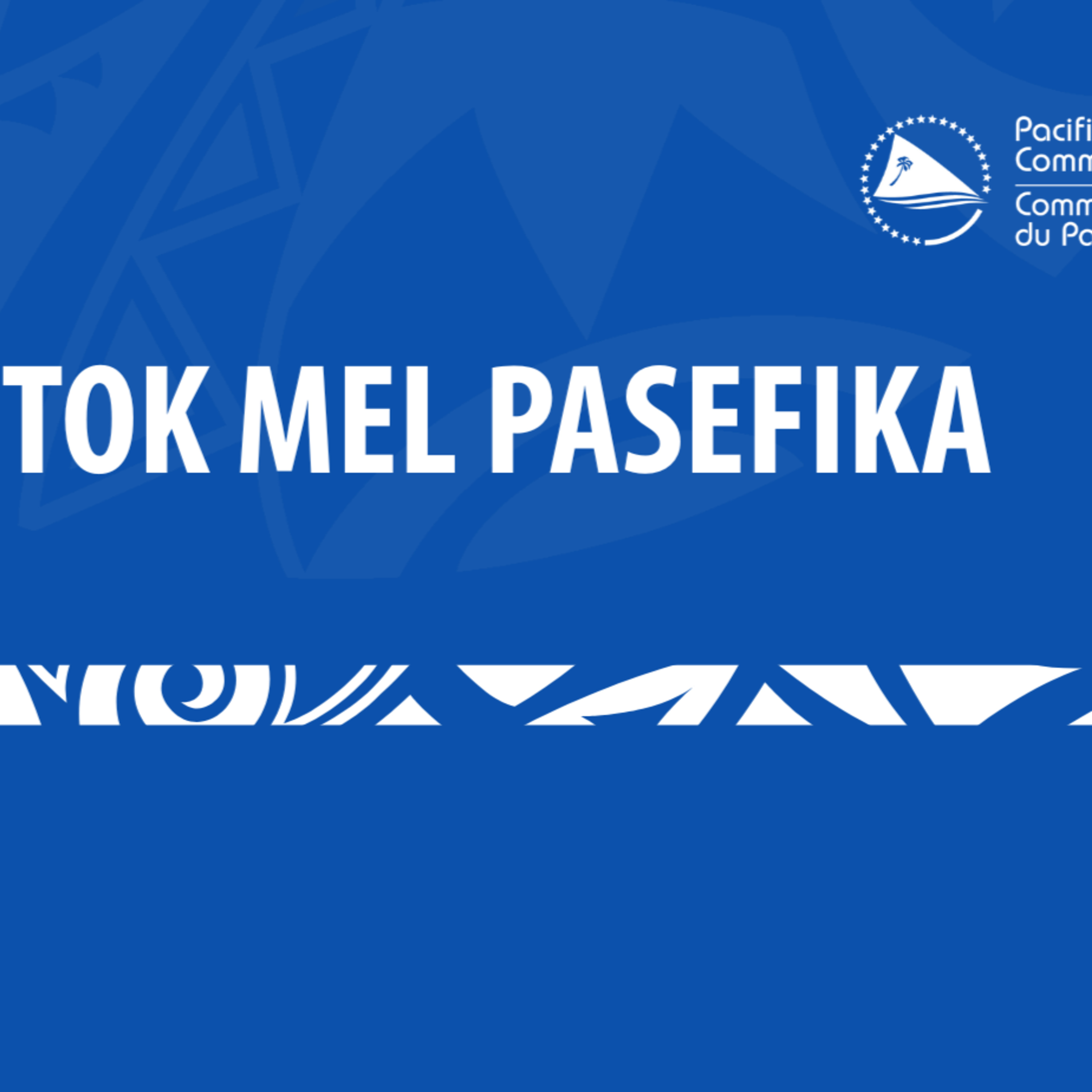Tok MEL Pasefika Episode 1: Pacific MEL, Our Way
- Author
- The Pacific Community (SPC)
- Published
- Fri 04 Jul 2025
- Episode Link
- https://podcasters.spotify.com/pod/show/the-pacific-way/episodes/Tok-MEL-Pasefika-Episode-1-Pacific-MEL--Our-Way-e3537jc
What does it mean to do MEL our way? Host EroniWavu is joined by Pacific MEL leaders Frances C. Koya Vaka'uta, Ruth Matela, Charlene Mersai, and Christina Hazelman for a powerful talanoa on what makes Pacific MELdistinct, and why it matters.
They unpack how MEL rooted in Pacific identity, culture, andrelationships offers not just a method, but a movement. They explore the evolution of MEL in the region and what it teaches us about accountability, care, contradictions, and courage.
This episode discusses “Navigating tensions between imposed frameworks and inherited values”, “The role of silence and relationships in how we learn”, “What’s gained when we don’t ignore context and culture”.
This podcast was made possible through SPC’s Funding withIntent initiative, funded by MFAT.
Please provide us feedback here: https://forms.office.com/r/yHK0eDhrex
Guests:
- Charlene Mersai, Ministry of Finance, Palau
Charlene serves as the Secretariat of the NationalEnvironmental Protection Council (NEPC), Palau’s lead coordinator for the 2030 Agenda for SDGs and one of Palau’s Focal Points for GCF Previously, Ms. Mersai served as the Micronesia Challenge Regional Coordinator, Palau’s GEFOperational Focal Point and was among the first Board Members for the Palau Protected Areas Network Fund. Today she serves on the board of Palau Public Utilities Corporation.
- Christina Hazelman, SPC
Christina is the Knowledge Integration and Learning Officerat SPC and has been part of the Pacific MEL journey since its inception in 2019.With over a decade of experience working in the Pacific development regional space, Christina is an enthusiastic champion of Pacific MEL and will share her observations on the evolution of MEL within the Pacific.
- Frances C. Koya Vaka’uta, SPC
Associate Professor Frances C. Koya Vaka‘uta is Team LeaderCulture for Development at SPC in Suva, Fiji. Before joining SPC, she was Director of the Oceania Centre for Arts, Culture and Pacific Studies, USP. Frances spent the last two decades teaching and researching in the areas of teacher education, curriculum studies, Pacific approaches to research, Pacificmethodologies, Pacific studies and Pacific arts and culture. She is passionate about Pacific arts and artists, the cultural and creative industries and is an advocate for contextual education, development and research.
- Ruth Maetala, Pacific Feminist Fund
Ruth is an indigenous Solomon Islander and currently Co-Lead Programmes and Innovation at the Pacific Feminist Fund. She gained her professional training in Economic Reform from the Kennedy School of Government, Harvard University and later gained a Diploma in Christian Education from Texas Bible College. Ruth has over 20 years of experience in social research, MEL and accountability. Ruth has several published works on women and matrilineal land,gender and natural resource ownership, women’s economic empowerment and women’s participation in peacemaking in Solomon Islands.
Links
· Pacific MEL (PacMEL) https://spc.int/updates/blog/2022/03/continuously-improving-monitoring-evaluation-and-learning-systems-key-for
· Pacific MEL Diploma https://www.spc.int/DigitalLibrary/SPC/Collection/Pacific_MEL
· Kakala Research Framework
· (PDF) Kakala Research Framework
· Kakala Research Framework | SpringerLink
· The Pacific Pause/Silence
· Babasiga: A study on silence
· silence | Southern Perspectives
· Pacific Frameworks and Relationality Koya, C.F.(2017). Rethinking Research as Relational Space in the Pacific Pedagogy andPraxis
· Palau Voluntary National Review https://hlpf.un.org/sites/default/files/statement/2021/palau-2.pdf
· Cultural etiquette handbook https://www.spc.int/digitallibrary/get/sz6zkSPC
